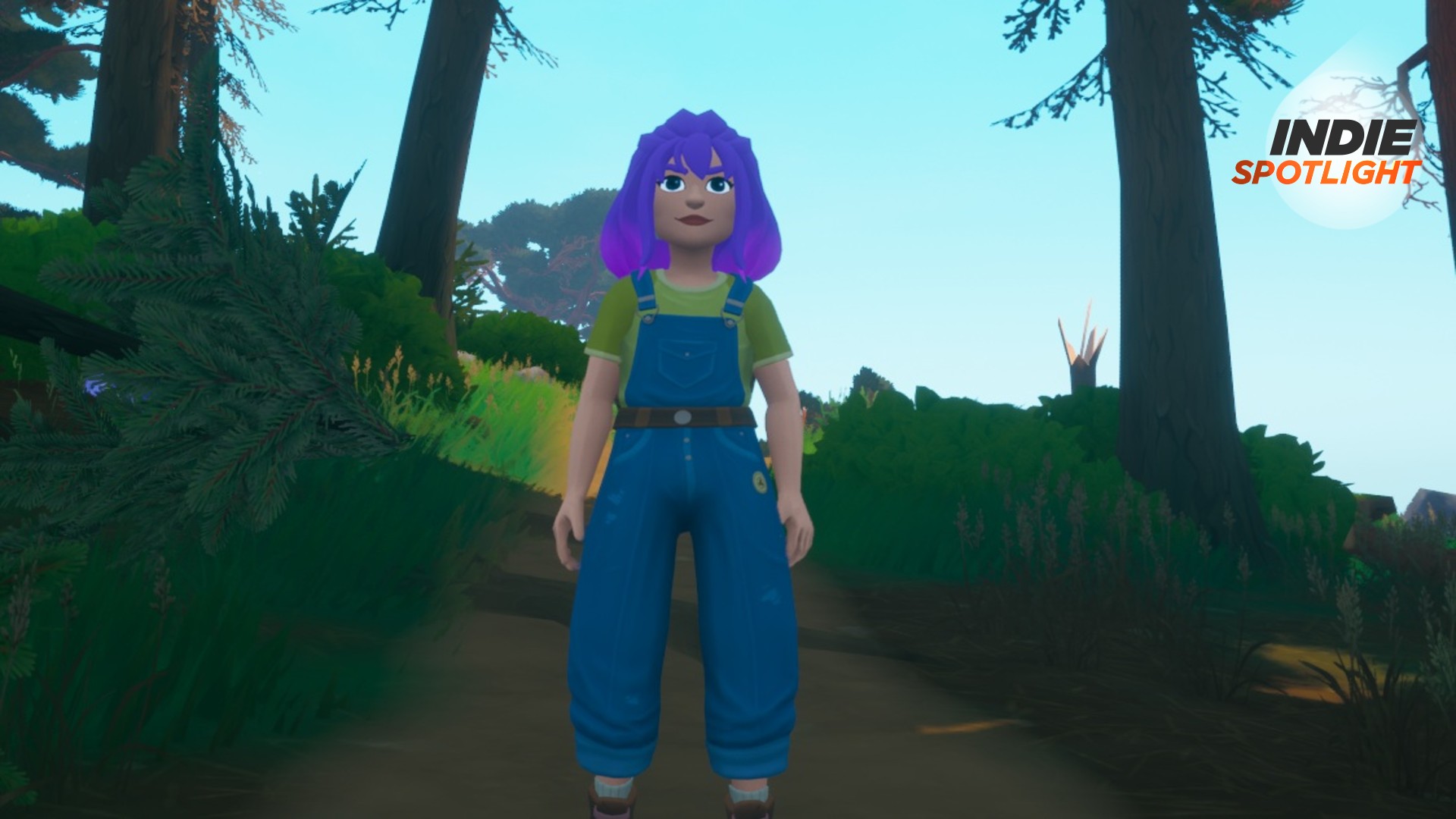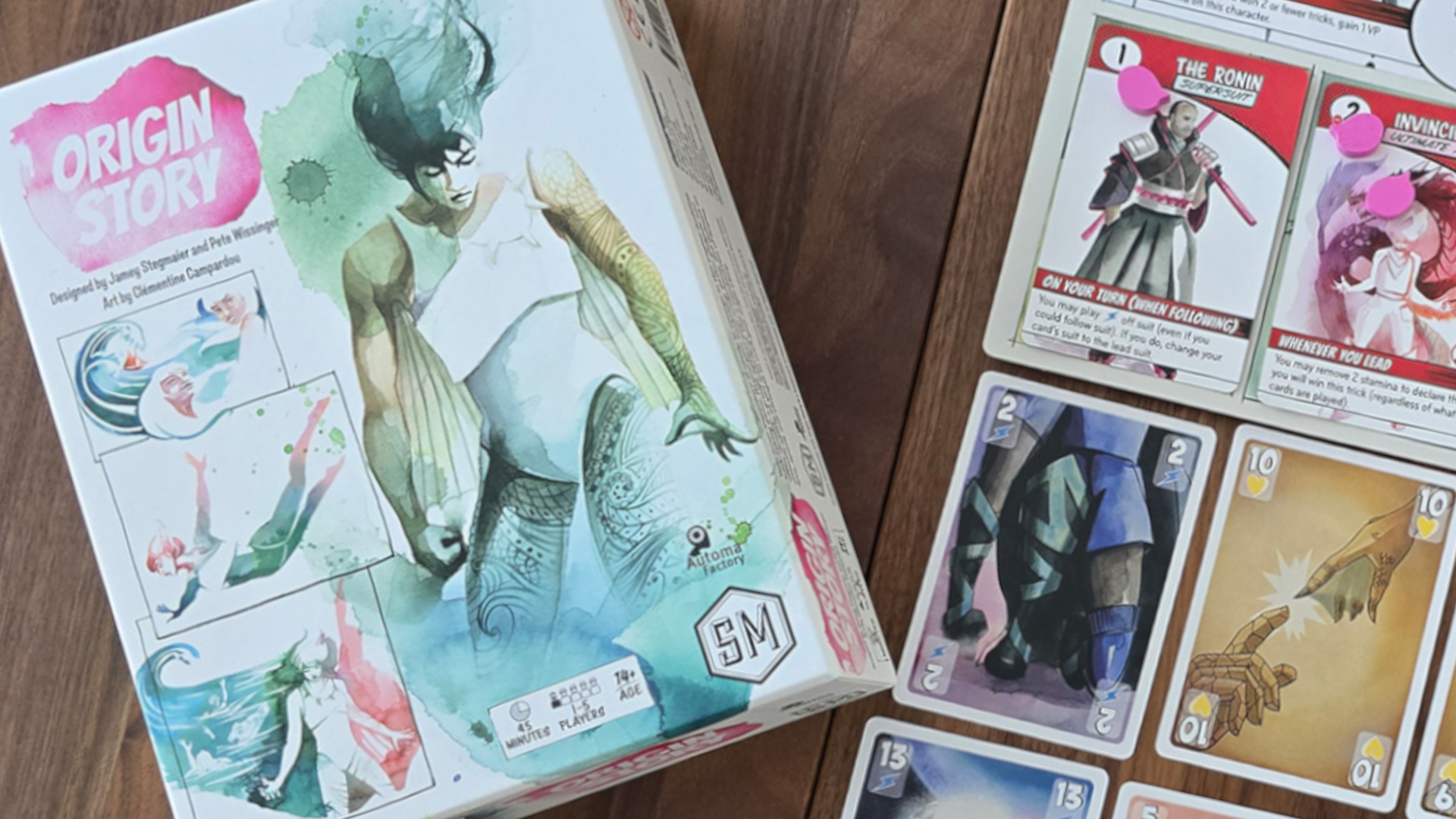Word Play is a spelling roguelike that feels like the final boss of Wordle and it made me feel like an angry genius
Indie Spotlight | I've traded sprinting around with sword and shield for spelling words in Word Play
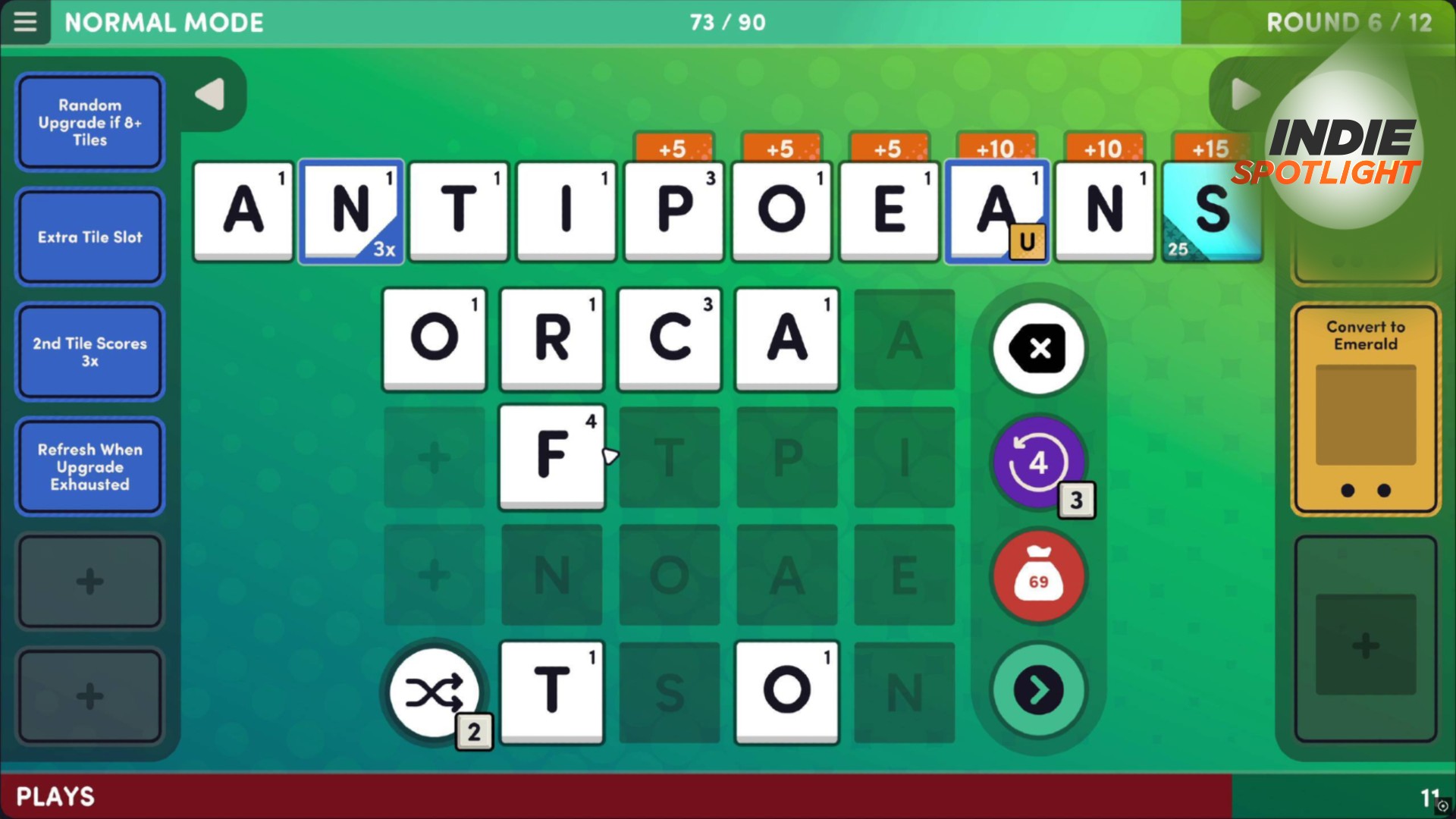
Somehow, I've still not yet played Balatro – the award-scooping, poker-themed indie roguelike card game – and I'm not really sure why. The combination of roguelike mechanics with deckbuilding, all contributing to racking up utterly bonkers scores sounds like the kind of strangely enrapturing gameplay that I'd love. Case in point: Vampire Survivors, which I can confirm is an absolute banger.
But then I saw that Mark Brown of Game Maker's Toolkit Fame was working on a word-based roguelike called Word Play. It's a Balatro-inspired game where rather than using cards to rack up points, you spell words using scored tiles – and as someone still somewhat committed to the daily puzzle grind, I was immediately hooked on the concept. After putting 17 hours into it, I'm surprised at just how engaging it is, keeping the simple monkey part of my brain occupied with a surprising amount of risk/reward gameplay from just letters and numbers.
Wordsmithing
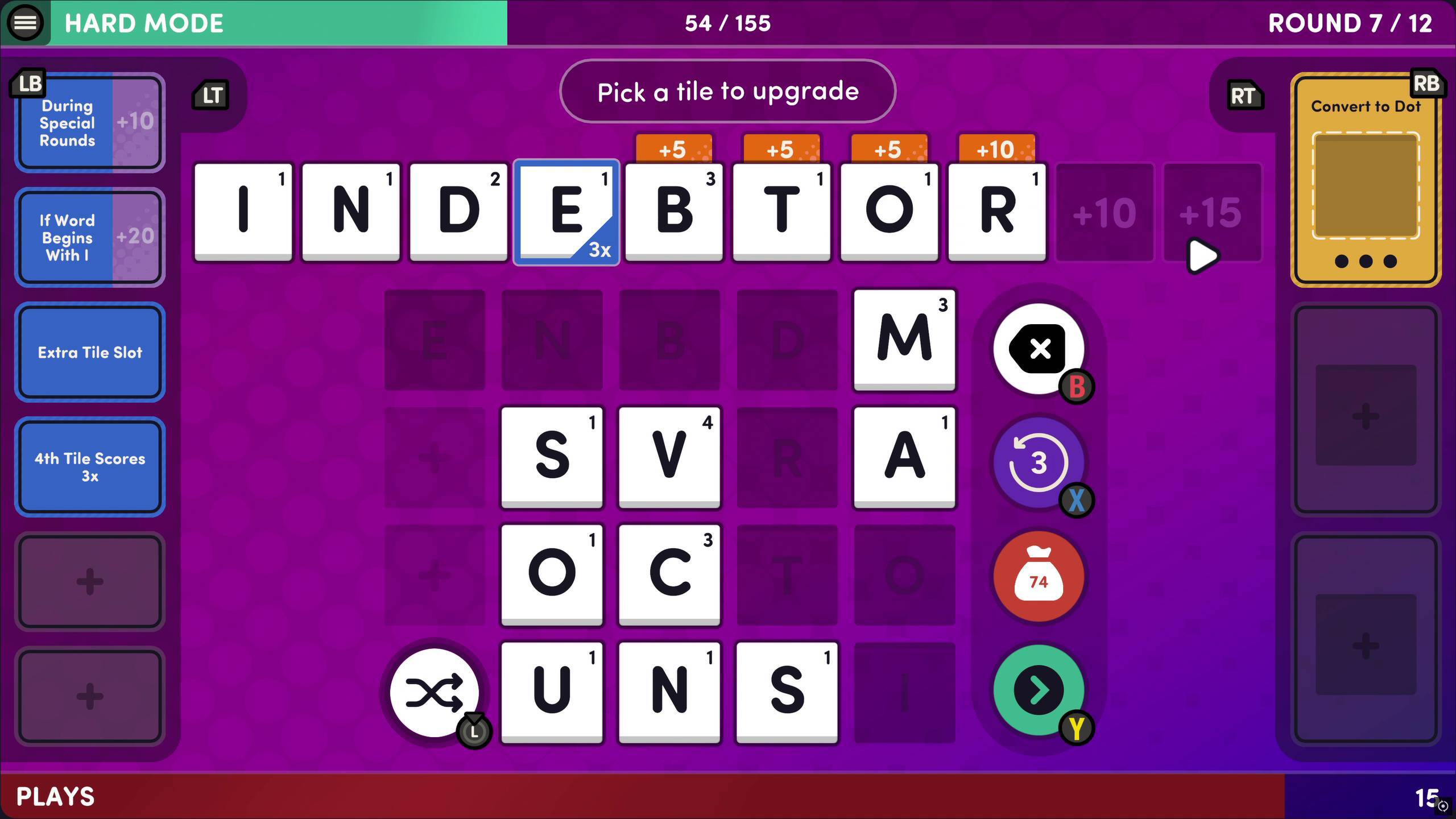
Word Play's premise is simple. 16 letter tiles are handed to you at random, all with various points values á la Scrabble, and it's your job to assemble them into the highest scoring word you can find.
More tiles are drawn to refill your spent ones, and you keep playing words until you either reach the round's score threshold or run out of limited "plays" – submitting a word costs one play but you get more back at the end of a round.
It's very simple at first, and those first few word submissions make for an interesting mental testing ground. Sometimes I'd spend several minutes wracking my brain, only able to turn up something simple like "goal" or "feat", but other times decent words like "traitor" or "vitality" would be immediately obvious, making me feel like a genius.
That feeling improves even more when you realise you can stack on even more letters to massively boost your score. With some extra letters, "traitor" can become "traitorous" or "valid" can become "validates", and so on.
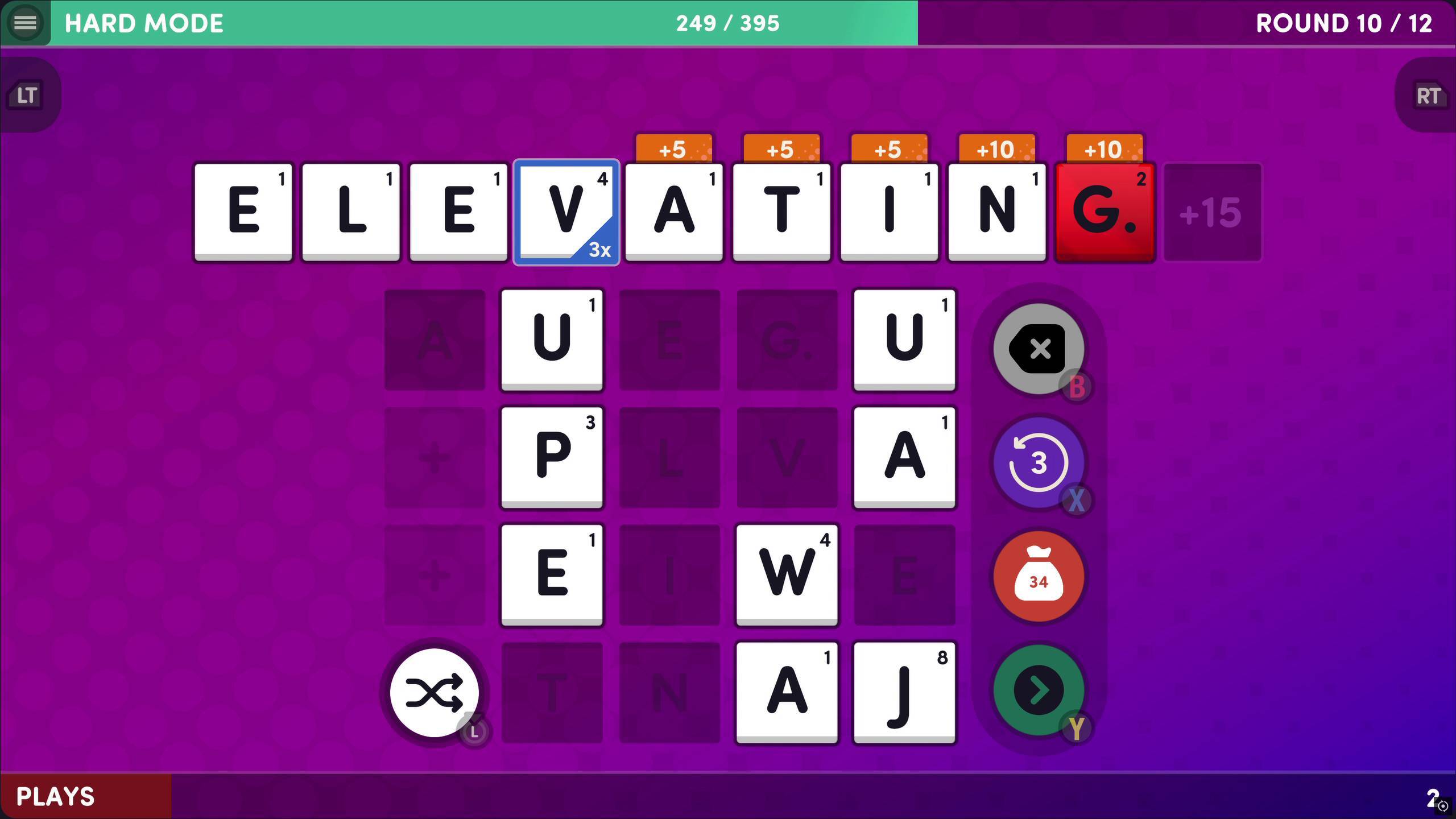
However, long words are a double-edged sword in Word Play, despite how obviously essential they are to easily get through rounds in as few plays as possible.
On the higher difficulties, I frequently got caught up trying to submit words that weren't too long near the end of a round to avoid wasting letters and therefore points – with no points spillover between rounds, I always think it's good an idea to submit the bare minimum to cross the line, but, upon reflection, this risk-averse approach might actually be what ruins my runs.
There's also no worse feeling than finding a colossal word that could win you an entire round in one fell swoop, only to realise you're missing one or two crucial letters, leaving you desperate to try your luck and hope they pop up in the next draw after submitting some paltry word. I once held two Z tiles with a diamond upgrade that made them worth over 90 points each, utterly desperate to get the letters for "bedazzling" or "embezzling". After finally getting the letters for "dazzling" I pushed my luck to no avail and ran out of plays, ending my run in a spectacular failure
Weekly digests, tales from the communities you love, and more
Under its spell
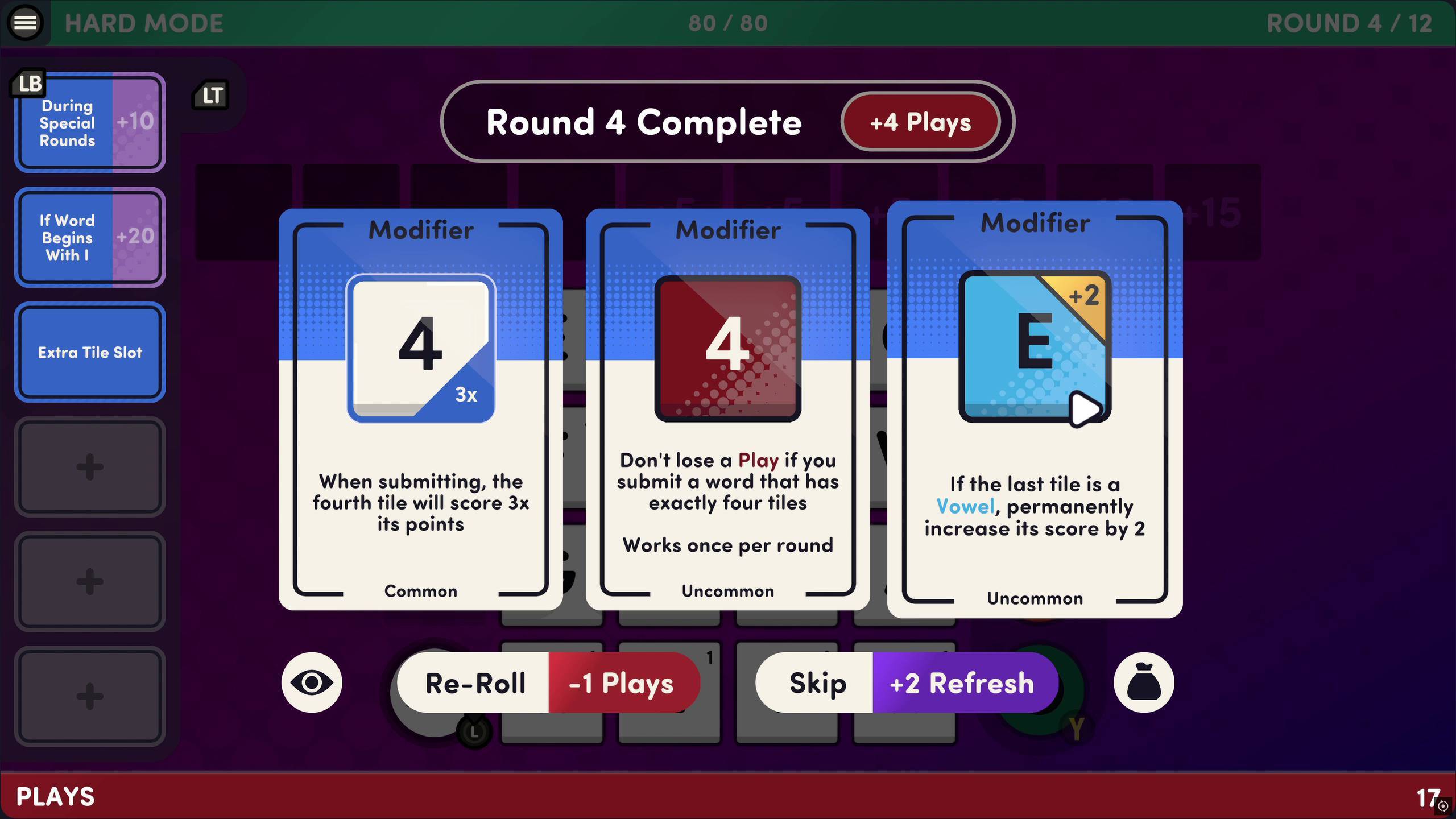
Being able to sit back, take my time, and really ponder my approach was extremely welcome
Of course, this risk/reward playstyle is par for the course for the best roguelikes, but unlike others in the genre, Word Play can be very slow.
That's not necessarily a bad thing. Word Play's tortoise-like pacing is a breath of fresh air for me, reminding me of some of the New York Times word games that I keep coming back to. After almost feeling like I was physically out of breath playing the relentlessly intense Elden Ring: Nightreign, being able to sit back, take my time, and really ponder my approach was extremely welcome.
On some runs, I'd spend far too long trying different letter combinations because there's a surprising amount of strategy and a lot to consider for a game that is just about spelling!
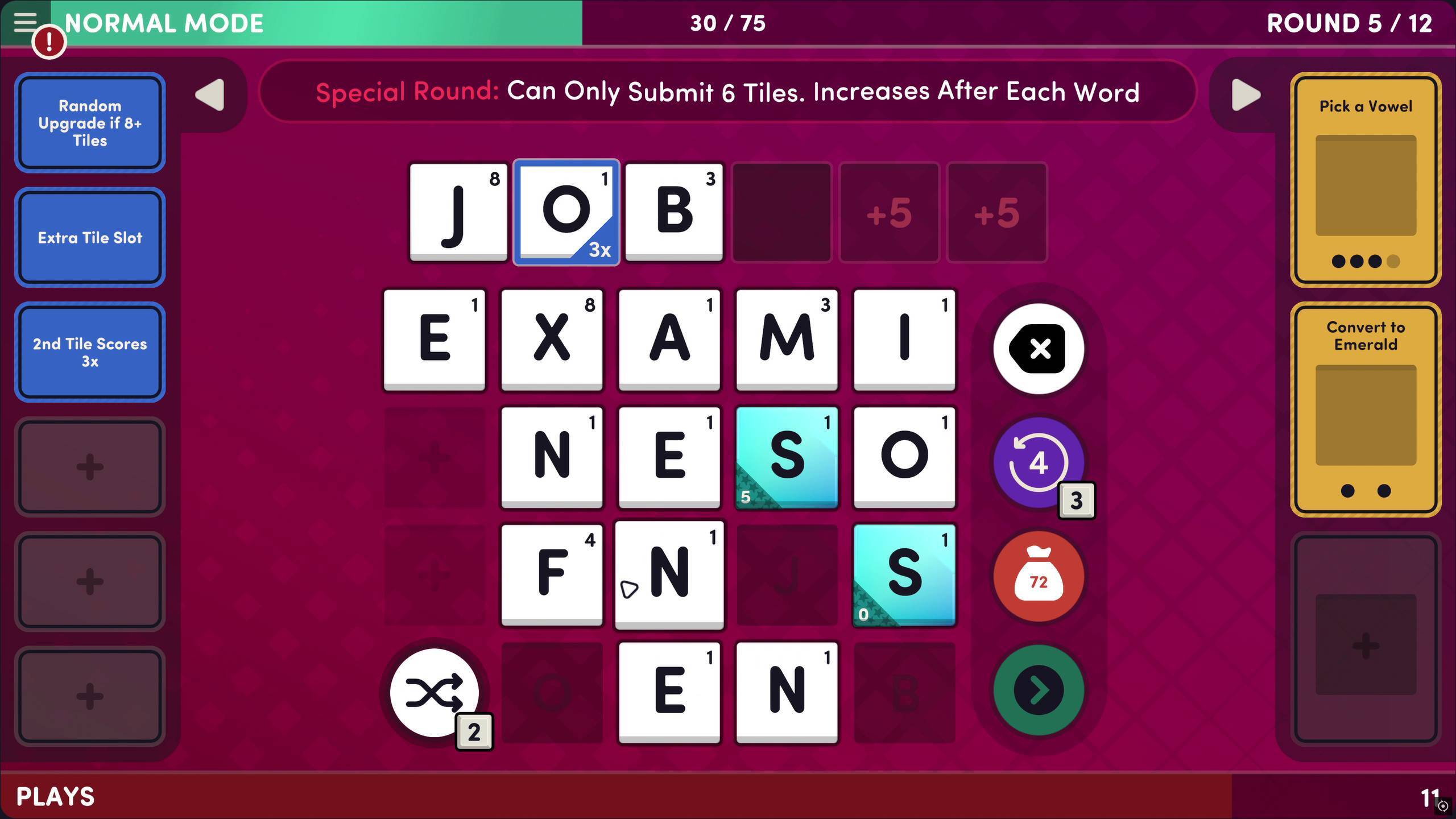
I must admit that, at points, some of my letter tiles left me so stumped I was on the verge of getting a headache, and sometimes Word Plays upgrades and perks don't help as much as I'd hope.
I often found myself picking the same few perks whenever I could, like having an extra letter tile or a nice multiplier for the third letter in a submitted word. And perks like the one that fuses Q and U into a single tile sound helpful, but I found they can often be detrimental as that's one fewer tile contributing to your score.
With that said, Word Play still serves as an excellent example of how the roguelike genre can be morphed and fused to create something entirely new, building off Balatro's success at doing the same thing but with deckbuilding and poker hands. While I'm a big fan of games like Hades 2, charging through legions of foes and clobbering bosses at lightning speed with boons of the gods, Word Play is an undeniably fresh experience for me, scratching an intellectual itch for scored spelling I didn't know I had.
Check out all the upcoming indie games to watch for in 2025 and beyond once you've had your Word Play fix
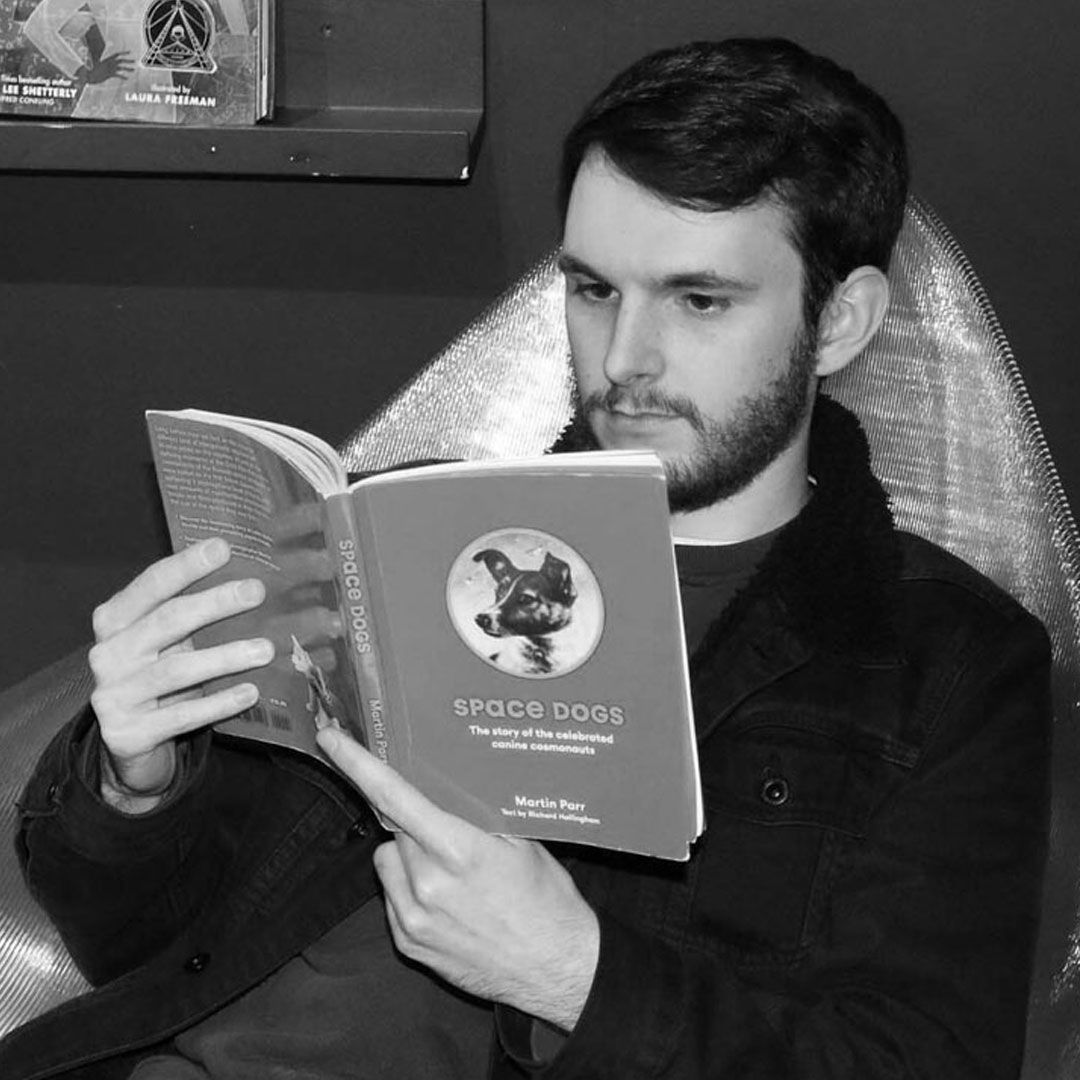
Will Sawyer is a Guides Editor at GamesRadar+ with over five years of experience in writing online guides, news, and features, and has a BA (Hons) in Journalism. Starting as a freelancer, Will contributed to startmenu and Game Rant before joining the GamesRadar+ team in August 2021. Since then, he has written hundreds of guides about a huge range of games, with shooters and action games being his areas of expertise. Outside of writing about games, Will hops between multiplayer shooters with friends, such as Darktide and Helldivers 2, and delves into whatever has been on his backlog for far too long. He also tries to get through his never-ending Warhammer pile of shame of grey Tyranids, Aeldari, and Chaos Space Marines.
You must confirm your public display name before commenting
Please logout and then login again, you will then be prompted to enter your display name.
